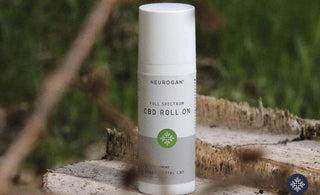CBD is psychoactive—it may elevate your mood as coffee or chocolate does—but it's a non-psychotropic compound. In comparison, THC has psychotropic effects.THC produces more significant effects on perception and feelings of euphoria.
Whether or not cannabis topicals get you high, the answer is it depends, as there are so many different products on the market, and cannabinoids can affect everyone differently. However, the general answer is no.
If you're looking for a mode of administration that gets you "high." Topical cannabis products, even ones with a high concentration of THC, aren't the most effective option out there.
The skin is an organ designed to protect us from our environment, and as such, it's not that great at absorbing compounds into the bloodstream to affect the central nervous system.
Topical CBD and THC interact with the endocannabinoid system in the skin and don't enter the bloodstream to exert their effects locally.
Medical grade transdermal patches may deliver cannabinoids into the bloodstream, but there are no FDA-approved transdermal cannabis patches.
What Are THC Topicals For?
Cannabis-infused topicals are designed for localized effects on the skin, muscles, and joints.
The active ingredients in cannabis products called cannabinoids primarily interact with the endocannabinoid system (ECS). The ECS has an important role in regulating many vital functions from our immune response, pain perception, memory, metabolism, hormones, and much more.
When you apply CBD cream or lotion to the skin, cannabinoids interact with cannabinoid receptors within the skin cells rather than in the bloodstream, so it doesn't have effects on the central nervous system directly.
Cannabinoids in lotions, balms, and creams work by penetrating the skin and affecting nearby ECS receptors to supplement the skin organ's regulatory function.
There are countless topical cannabis formulations on the market, and each will have a different use, depending on the ingredients list. For example, CBD salve and balms contain a high amount of natural waxes and little to no water to form a thick barrier on the skin to relieve it from intense dryness or irritation and may have some benefit towards relieving muscle and joint discomfort.
CBD massage oil combines the benefits of massage therapy and the relaxing properties of CBD. Massage oils should have enough slip for the hands to glide across a large surface area of the body while still providing friction for pressure.
Medical-Transdermal Topicals May Get You High
Transdermal patch technology has been used as an effective way to administer some prescription medications, including hormone treatments, pain killers, and steroids, at a slow and controlled rate. The transdermal medication works by penetrating the skin and mucosal membranes, eventually delivering the drug into the bloodstream.
We've seen a few transdermal CBD and THC patches online, but none of them have any lab evidence to suggest that they're effective.
While cannabinoids like THC and CBD are widely studied for their potential wellness benefits, there are no FDA-approved topical products that can treat diseases or mitigate pain, so if you encounter a product that claims this, it's a red flag.
Can You Get High Off Of CBD Topicals?
CBD doesn't have psychotropic effects like THC and does not elicit a high in most people even when smoked, which has a much higher bioavailability rating over applying it on the skin or eating it.
CBD does, however, have psychoactive effects—many people report feeling more uplifted, relaxed and have a general sense of wellbeing when they take CBD, but it doesn't alter their perception (sense of time, spatial awareness, or vision).
Most people don't experience a high when using high-strength CBD body creams, lotions, massage oils, or CBD roll on but some report such a deep sense of relaxation in their muscles and joints that they almost feel high, but it could be from relief and feel-good hormone release.
Will THC-Based Lotion Show Up On A Drug Test?
Drug tests look for metabolites of illicit compounds. A metabolite is the form an active compound takes as the body starts to break it down. For CBD or THC to have metabolites in your system, it would have to circulate your bloodstream to get processed by the liver.
Since topical CBD products, even those containing THC, are absorbed through the skin but don't enter the bloodstream, they won't show up on blood or urine drugs tests.
CBD is considered a federally legal compound as long as it's derived from Farm Bill compliance hemp crops. If you're worried about failing a drug test, we'd recommend you stay away from THC products altogether and opt for a broad spectrum hemp extract instead of a full spectrum extract that may contain up to 0.3% THC.
Which Topicals Will Get You High?

Suppose you're looking for an effective way to get high from cannabis products. In that case, topical cannabis-infused products probably aren't the best way to go, as cannabinoids don't enter the bloodstream through the skin to produce any substantial effects on the central nervous system. As such, they also won't trigger a positive drug test.
Cannabis-based creams and salve are best used for localized benefits on the skin and muscles. Cannabis topicals are becoming extremely popular as more people learn the health benefits of CBD and other cannabinoids and how well it interacts in the sign.
While there isn't substantial scientific evidence to support CBD's use topically to treat skin conditions like eczema, psoriasis, acne, or muscle and joint pain, it's become many people's go-to as a natural way to improve their overall skin health and comfort.


